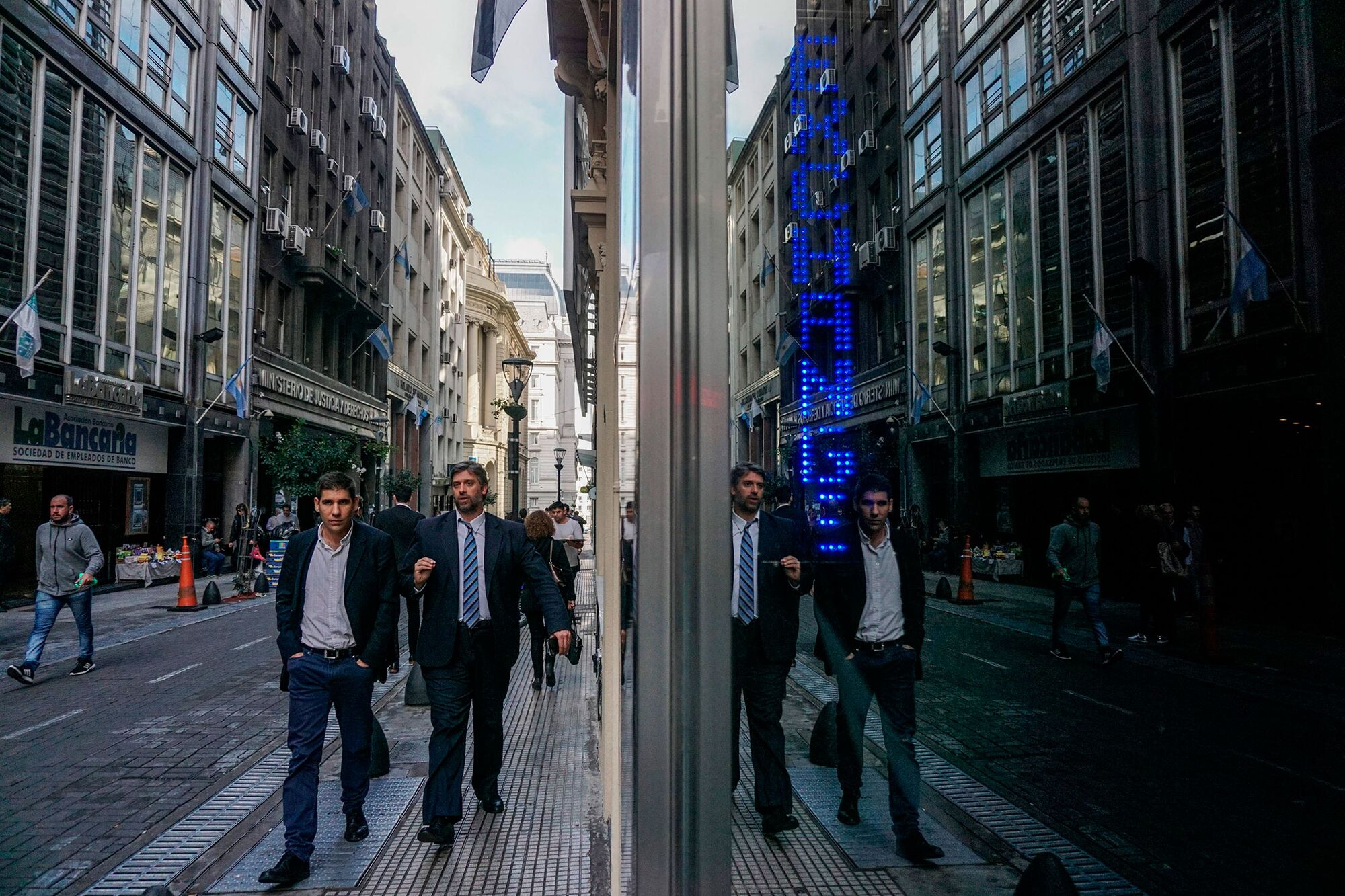POLITIK
Gazprom gegen MoldauWie Russland mit Gas einen Staat erpresst
Im September begrüßte die moldauische Präsidentin Maia Sandu Bundespräsident Steinmeier (nicht im Bild) in Chișinău.
(Foto: picture alliance/dpa)
Nach langen Verhandlungen einigen sich Moldau und der russische Staatskonzern Gazprom auf einen neuen Fünfjahresvertrag. Eine Versorgungskrise in dem kleinen Land ist damit abgewendet. Der Preis dafür könnte Moldaus europäischer Kurs sein.
Als die prowestliche Politikerin Maia Sandu im November 2020 zur Präsidentin der Republik Moldau gewählt wurde, betonte sie, sie wolle die guten Beziehungen zu Russland unbedingt aufrechterhalten. Doch seit das moldauische Parlament im August eine neue, von Sandu bestimmte Regierung bestätigte, kriselt es gewaltig zwischen Moldau und Moskau. Angesichts einer drohenden Gasknappheit sah sich das kleine Land zwischen Rumänien und der Ukraine bereits gezwungen, den Ausnahmezustand zu erklären.
Am Freitag dann einigten sich Vertreter Moldaus und die Führung des russischen Staatskonzerns Gazprom bei Verhandlungen in Sankt Petersburg auf einen neuen fünfjährigen Vertrag. Zuvor hatte Gazprom gedroht, ab Dezember kein Gas mehr nach Moldau zu liefern. Für Moldau ist die Gaskrise damit vorerst beendet. Der politische Preis für die Einigung könnte allerdings hoch sein. Wie die "Financial Times" unter Berufung auf eigene Quellen berichtete, bot Gazprom Moldau Gas zu einem niedrigeren Preis an, wenn die Regierung in Chișinău ihr Freihandelsabkommen mit der EU neu verhandele und die mit der Europäischen Union vereinbarten Energiemarktreformen verschiebe.
Ob Präsidentin Sandu tatsächlich ihren Kurs ändert, wird sich in den kommenden Monaten zeigen. In jedem Fall war der Verhandlungsprozess ein Musterbeispiel dafür, wie Russland versucht, die Abhängigkeit eines Landes vom russischen Gas zu nutzen, um es auf Distanz zur EU zu bringen.
Nachdem der bisherige Gasvertrag im September ausgelaufen war, musste Moldau im Oktober im Rahmen eines kurzzeitigen Zwischenvertrages rund 790 US-Dollar pro 1000 Kubikmeter bezahlen - etwa fünfmal mehr als 2020. Bei der Preiserhöhung spielten auch die generellen europäischen Rekordgaspreise eine Rolle. Doch Gazprom übte auch auf eine andere Art Druck auf Chișinău aus: Nämlich bestand Gazprom-Sprecher Sergej Kuprijanow vor einer Woche darauf, dass Moldau Schulden aus früheren Lieferungen vor der Abschließung eines neuen Vertrages zurückzahlt. Die Schulden bezifferte Kuprijanow einschließlich Verzögerungsstrafen auf 709 Millionen US-Dollar.
"Element des hybriden Kriegs"
Dass Russland einer vermeintlich prowestlichen Regierung keinen niedrigen Gaspreis zugestehen und in Moldau alte Schulden eintreiben will, mag auf den ersten Blick politisch nachvollziehbar sein. Doch so einfach ist es nicht. "Diese 'historischen Schulden' beginnen im Jahr 1994", sagte der moldauische Vizepremier Andrei Spinu. "Wir sind bereit, über diese Fragen zu verhandeln, aber erst nach einer gründlichen Prüfung des zuständigen Unternehmens Moldovagaz, um die Herkunft der Schulden nachzuvollziehen." Weil Gazprom Hauptaktionär von Moldovagaz ist, handelt es sich de facto um ein Tochterunternehmen des russischen Staats.
Valeriu Pasha, ein Experte der Organisation WatchDog Moldova, nennt die Schulden "künstlich". Nicht die Republik Moldau habe Schulden bei Gazprom, sondern Moldovagaz - ein Unternehmen also, das zum größten Teil Gazprom gehöre. Niemand habe die Verträge überprüft, auf denen die Geldforderungen basieren: Gazprom habe viel mehr Geld aus Moldovagaz herausgepumpt als Gas geliefert, sagte Pasha der russischen Redaktion der BBC.
In Moldau ist man sicher, dass es Gazprom und Russland weniger darum ging, dass Moskau - wie vom Kreml dargestellt - Verluste für den eigenen Staatshaushalt vermeiden wollte. Viel wichtiger sei der Aspekt der politischen Beziehungen zu Chișinău, die sich nach dem Wahlsieg von Maia Sandu allen Beteuerungen zum Trotz verschlechtert haben. "Es ist ein Teil der üblichen Strategie Russlands, im nahen Ausland die ökonomischen Kosten zu erhöhen und das Wachstum zu reduzieren, um eine fruchtbare Entwicklung und die Fortsetzung der europäischen Integration zu verhindern", sagt Valeriu Pasha, der dies für ein Element des "hybriden Kriegs" der russischen Regierung hält.
Pasha zufolge liegt es allerdings auch in der Verantwortung der Staatsführung von Moldau, die sich in 30 Jahren keine Mühe gemacht habe, ihre Energieversorgung zu diversifizieren, weswegen das Land weiterhin von Gazprom erpresst werden kann. Tatsächlich hat Chișinău kaum ernsthafte Alternativen zum russischen Gas erschlossen. Jüngste Noteinkäufe in Polen, den Niederlanden und der Ukraine erwiesen sich als nicht besonders erfolgreich. Ohnehin würde das Szenario, Gas künftig vor allem aus Rumänien und der Ukraine zu beziehen, vermutlich daran scheitern, dass beide Länder nicht ausreichend exportieren können.
Zwar hat auch Gazprom in Moldau einen schwachen Punkt, nämlich die Lieferungen in das abtrünnige und von Moskau unterstützte Transnistrien, die ohne Moldau technisch nicht möglich sind. Auch das dürfte beim Abschluss des neuen Vertrages eine Rolle gespielt haben. Dennoch ist es bei der harten Rhetorik Moskaus der letzten Wochen kaum vorstellbar, dass die Regierung um Präsidentin Sandu keine ernsthaften Zugeständnisse an Gazprom gemacht hat. Jedenfalls bleiben die konkreten Bedingungen des neuen Vertrages unbekannt. Die russische Nachrichtenagentur TASS berichtet indes, dass die neue Preisformel einen Preis zwischen 500 und 600 US-Dollar bedeuten würde. Dies ist zweimal mehr als beim letzten Vertrag, aber immerhin deutlich weniger, als Chișinău im Oktober zahlen musste.
Quelle: ntv.d






